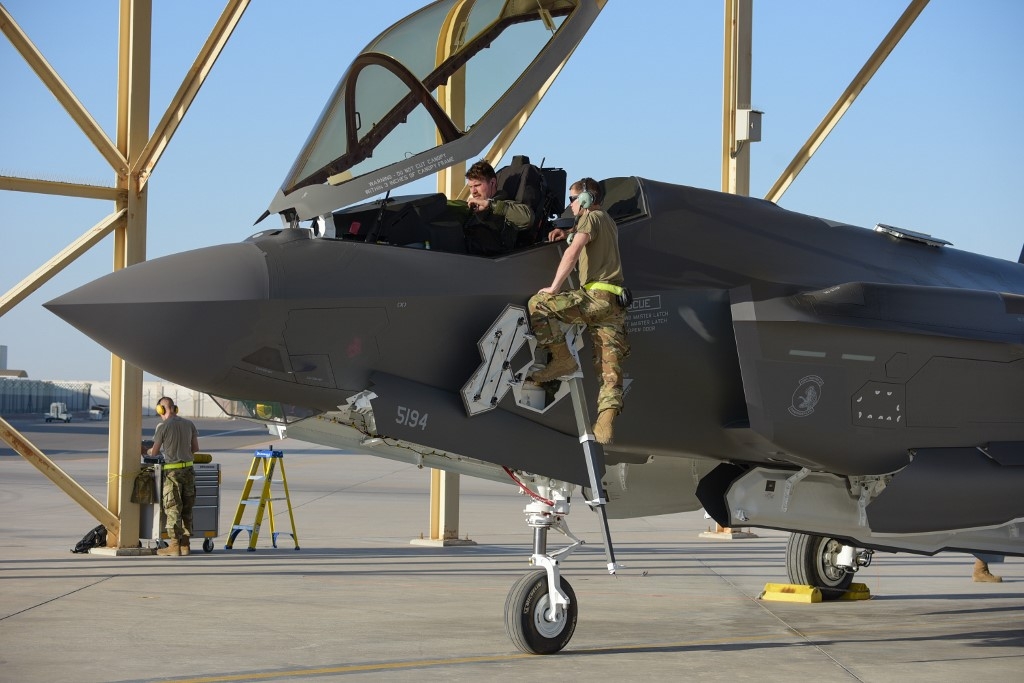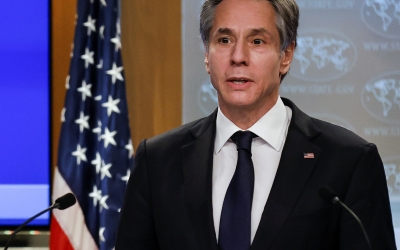UAE confident F-35 jets sale will go through despite Biden review, says ambassador

The United Arab Emirates is confident that a deal to purchase F-35 fighter jets from the US will proceed despite the administration of President Joe Biden issuing a review of the Trump-era sale, the country's ambassador to Washington has said.
Yousef al-Otaiba described the review as routine and expected, and said the Emirates' purchase of 50 F-35 jets, 18 armed drones, and other defence equipment - a deal valued at $23bn - will go ahead as planned.
"Should they review it? They absolutely should, but they're going to find what we already know. It was done through a very straightforward negotiating process," Otaiba said on Monday during a virtual panel hosted by the Washington Institute for Near East Policy.
"We did everything by the book, and I think they're going to discover that once the review is complete, and it will proceed."
Washington's plans to sell the fighter jets to Abu Dhabi came days after the UAE agreed to normalise ties with Israel in White House-brokered talks last August.
Until then, the US refrained from selling the F-35s to any country in the Middle East except Israel, out of concerns it would damage Israel's qualitative military edge (QME), a legal requirement for the US to ensure Israel maintains military superiority in the region.
Last week, the Wall Street Journal initially reported that the Biden administration was freezing US arms sales to Saudi Arabia and the UAE. It has since emerged that Washington is reviewing purchases made by the UAE.
The sale was criticised by some members of Congress who put forward resolutions opposing the deal, citing both threats to Israel's QME and also fears that weapons could be used to further fuel conflict in Libya and Yemen. The effort ultimately failed, however.
The sale is also at the centre of a lawsuit filed by an American NGO which states that the weapons deal was rushed through without proper legal requirements.
Smaller presence in Middle East
According to a report by Politico, the Biden administration has quietly begun restructuring its staff to shift its focus from the Middle East to Russia and China.
The changes essentially flip the structure of the Obama-era National Security Council (NSC) and is a sign that the administration plans to be less involved in the region.
Otaiba noted this change on Monday and said that if Washington wanted to confront Russia and China, it would need to properly arm its allies in the Middle East.
"If you are going to have less of a presence and less involvement in the Middle East, you can’t at the same time take tools away from your partners who are expected to do more," he said.
Despite approving of the normalisation deal between the UAE and Israel, the Biden administration has vocalised its intent to reverse some of Trump's previous policies viewed favourably by the two countries - including returning to the Iran nuclear deal.
The Biden administration has also been critical of the devastating war in Yemen, which a military coalition led by Saudi Arabia and the UAE has been engaged in since 2015.
US Secretary of State Antony Blinken said during an interview with NBC which aired on Monday that Riyadh was an "important" US ally, but suggested that a review of bilateral US-Saudi ties was already underway.
Middle East Eye propose une couverture et une analyse indépendantes et incomparables du Moyen-Orient, de l’Afrique du Nord et d’autres régions du monde. Pour en savoir plus sur la reprise de ce contenu et les frais qui s’appliquent, veuillez remplir ce formulaire [en anglais]. Pour en savoir plus sur MEE, cliquez ici [en anglais].





